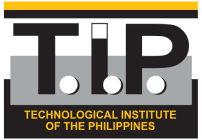

The Doctor of Philosophy in Computer Science is a research-oriented program which focuses on several areas in Computer Science coupled with rigorous breadth and depth of knowledge. The program is completed primarily through a supervised research that contributes to new knowledge, theory and technology.
The program aims to produce computer scientist who are armed with methods, tools and techniques from both theoretical and system aspects of computing, and who can independently formulate computing problems and develop new and innovative technology that forms a novel contribution for the advancement of the discipline and solutions to issues.
PROGRAM EDUCATIONAL OBJECTIVES
Three to five years after graduation, the Doctor in Philosophy in Computer Science (PHDCS) alumni shall:
- have advanced their practice or achievement in the field of Computer Science and/or other endeavors or advocacies, including technopreneurship, supported by their acquired computer science education;
- be globally competitive through
- living by the T.I.P. mission values, engaging in lifelong learning, and practicing continuous quality improvement in their personal lives;
- continuously scanning, adopting, and building on the best practices in their field;
- contributing to the advancement of learning in the field of Computer Science through research and professional practice.
STUDENT OUTCOMES
| SO 1 | Develop solutions to highly complex Computer Science problems with full independence and/or in multidisciplinary teams in a more complex setting. |
| SO 2 | Demonstrate proficiency in conducting complex research in the field of Computer Science |
| SO 3 | Communicate effectively in a variety of professional contexts. |
| SO 4 | Demonstrate advanced management skills in a complex project in the field of Computer Science in a diverse environment. |
| SO 5 | Apply ethical and professional principles in the practice of Computer Science |
| SO 6 | Apply highly advanced knowledge and skills for the advancement of learning. |




